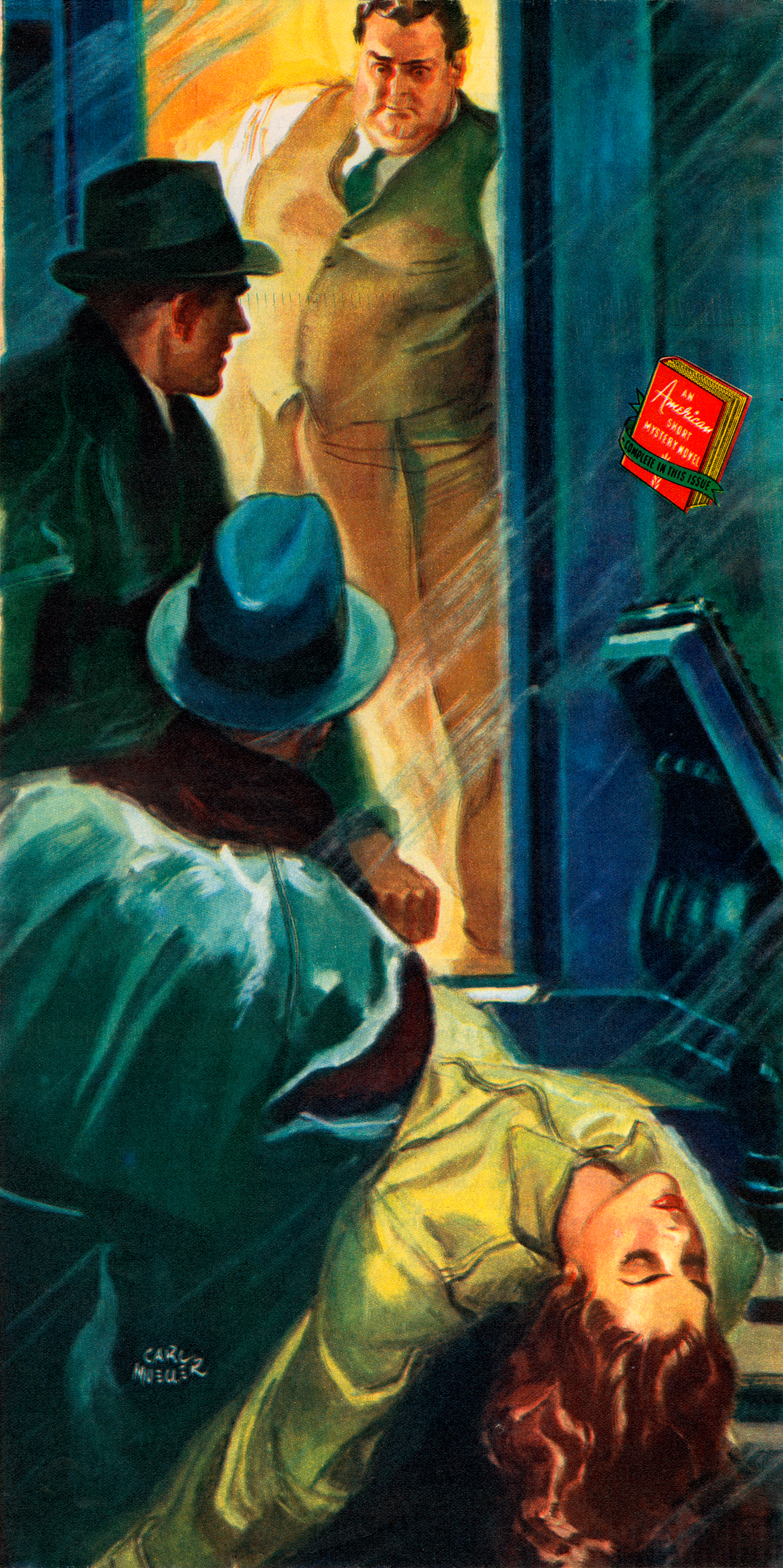 For some folks, mysteries are two-sided stories. There's always the central puzzle to solve: usually who left a corpse (or corpses) laying around. Then there's the motive behind the misdeed. But what keeps a lot of mystery readers glued to the page is the thrill of the chase. They stay awake for hours, mentally following a Sam Spade or Cormoran Strike from one risky scenario to the next, taking on all comers in a fight to the finish. It's grand entertainment when it's done right. But they're not on the menu today.
For some folks, mysteries are two-sided stories. There's always the central puzzle to solve: usually who left a corpse (or corpses) laying around. Then there's the motive behind the misdeed. But what keeps a lot of mystery readers glued to the page is the thrill of the chase. They stay awake for hours, mentally following a Sam Spade or Cormoran Strike from one risky scenario to the next, taking on all comers in a fight to the finish. It's grand entertainment when it's done right. But they're not on the menu today.
This is a salute to the mega-brains of detective fiction, those sleuths who never break a sweat. Literature refers to them as "arm-chair detectives." They're Sedentarians, to me.
I know a bit about Sedentarians from my father's side of the family. I saw them in action, so to speak, as a kid. Yes, my dad's folks were farmers originally, but whenever we went for a visit, the family got together and sat. And sat. For hours on end. Until, if sitting was an Olympic Sport, my family would all have been medalists. But, however stationary my
relatives could be, none of them were a patch on Mycroft Holmes.
If you follow Arthur Conan Doyle's stories, Mycroft first shows up in "The Adventure of the Greek Interpreter", and has the dubious distinction of being the only person who can make Sherlock Holmes feel stupid. (It would be a sibling, right?) In many ways Mycroft is Sherlock on steroids; if Sherlock is smart, Mycroft is brilliant. Sherlock is difficult; Mycroft, impossible. But when Sherlock is confused, his bigger (in every way) brother is the person he turns to. Because, although he doesn't move, Mycroft thinks. And his thoughts solve international mysteries without ever leaving his chair.
 It's a great idea for a character right? Rex Stout must have thought so because he created another great armchair detective, Nero Wolfe. But, instead of being a supporting character, like Mycroft Holmes, Nero Wolfe carries 40 plus years of a detective series. With a chef to cook his meals and Archie Goodwin for checking details, Mr. Wolfe spends his time eating, gardening and solving crimes. And he's damn good at it.
It's a great idea for a character right? Rex Stout must have thought so because he created another great armchair detective, Nero Wolfe. But, instead of being a supporting character, like Mycroft Holmes, Nero Wolfe carries 40 plus years of a detective series. With a chef to cook his meals and Archie Goodwin for checking details, Mr. Wolfe spends his time eating, gardening and solving crimes. And he's damn good at it.
But that brings up a fairly good point because few sedentarians work alone (Auguste Dupin may be the exception). For all of their perception and intelligence, Mycroft and Nero both need someone to do occasional leg-work. Another of the armchair detectives in contemporary fiction, Val McDermid's, Stacy Chen knows she lives in two universes. In the asphalt-and-steel world, she doesn't (and can't) contribute much to her boss's investigations; among other things, Stacy lacks social skills. But Stacy, in her chair, dances through a virtual world of information, where flesh-and-blood detectives have barely learned to crawl.
And, for that reason alone, the future of the Sedentarian detectives like Lincoln Rhyme have a wide-open future in fiction. Armed with knowledge, technology, and first-class brains, a detective can investigate real crime in a virtual world. Or virtual crime here. Really, a socially-frustrated, hyper-intelligent, nosy-parker with wifi might be our next great detective hero.
I'd sit down to read that!
























